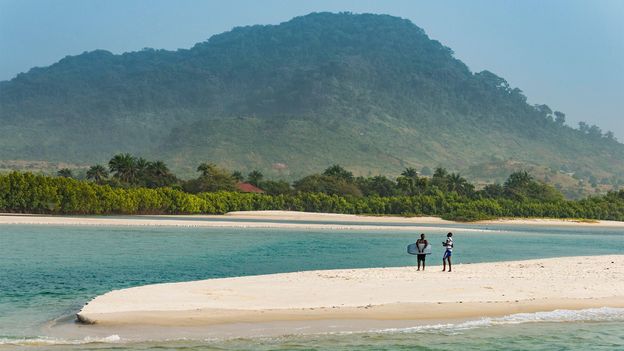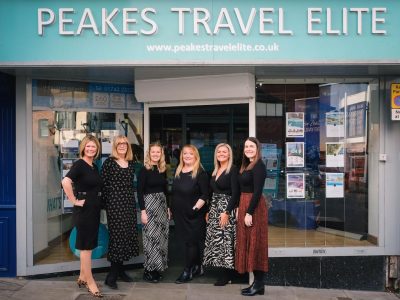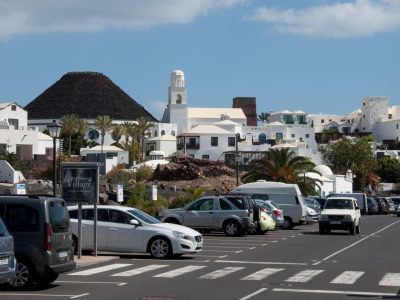Bangura practiced law in New York before returning home in 2007. In Freetown, she founded The Barray, a collective of artists promoting Sierra Leone’s contemporary visual art scene. “The civil war devastated the creative sector,” said Bangura. “But we are resilient people. Our creative community, including art, music, fashion, film and theatre, is beginning to heat up.”
That excitement was evident at MaryAnn Kaikai’s regular salon in western Freetown, where a dozen women gathered one evening under the shade of mango trees. Kaikai is the creative force behind Madam Wokie, a Sierra Leonean fashion label showcased in New York, Johannesburg and other international cities. Kaikai echoed Bangura’s feelings, saying that with everything Sierra Leoneans have been through – losing limbs in the war or suffering through Ebola – they are not bitter. “We have this fighting spirit where we say Tel God Tenki, [“I tell God thank you” in Krio], and we move on,” she explained.
Kaikai designs vibrant clothes and accessories for her community and beyond; actors Eva Mendes and Idris Elba, an honourary Sierra Leonean, are among the brand’s customers. Partnering with the World Bank and the Ministry of Tourism, Kaikai recently trained local women to become future tourism entrepreneurs and artisans, equipping them with skills like gara tie-dyeing, a traditional plant-based craft. The designer is optimistic about the future: “Despite everything, there’s always that feeling of hope.”
The legacy of resistance
Heading north-west out of Freetown, I watched busy markets and the rush of tuk-tuks disappear from view. A dense forested landscape took over. Wild mango and cashew trees rose over red soil. Villages gave way to colossal palms and micro-farms. This is the Northern Province, the nation’s sparsely populated farmland and cattle-rearing region.










